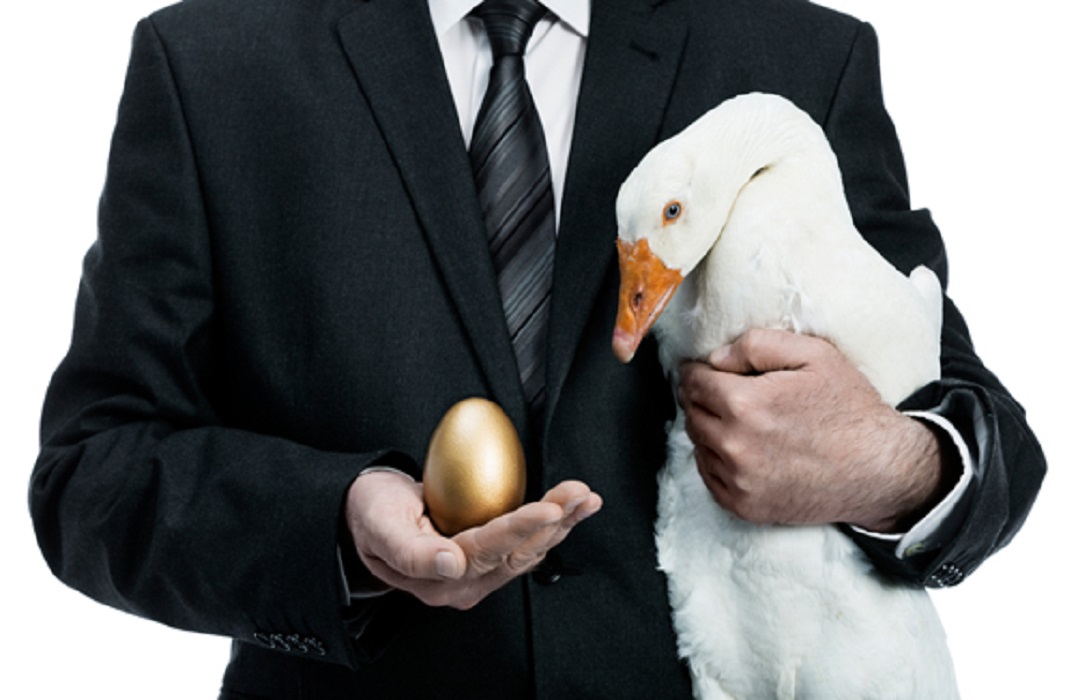
In the investment world, a golden goose can be a giant stock with growing or highly profitable company. The golden eggs could be the quarterly or yearly dividend distributed by the business to shareholders. The golden goose or business could grow in size and therefore could produce bigger golden eggs in future.
If one could have a golden goose which could lay a golden egg once a year, should the investor sell the golden goose to exchange for a big sum of money in short time or collecting the golden eggs patiently over a long time?
This is exactly the dilemma of some investors who hold on to a stock which has both passive income (eg. yearly dividend which is a golden egg) and capital gains over the time (golden goose becomes larger in size). They may get disappointed at later time if they keep the golden goose (stock) but the size (market cap and capital gains) could vary over the time, sometimes could have a weight loss or price loss of 50% during global financial crisis.
On the other hand, if they decide to sell the golden goose, it is a one-time profit, they may regret later when the golden goose becomes larger with more eggs laid consistently each year.
In fact, there is no right or wrong choice. They key is to ensure it must be a golden goose or a strong business. Whether buy low sell high (selling the golden goose) or buy & hold (growing the golden goose and collecting the golden eggs) is just a choice, matching own’s personality. In general, we should have 10 golden goose in our investing farm. Sometimes we may sell a goose for immediate gains when the goose grows faster than expected. When the crisis comes, we may use the cash from the gains to buy other golden goose at cheaper price. At the same time, the farm has some other golden goose which could lay eggs consistently even during the global financial crisis, providing stability to our overall investment.
One has to learn how to choose a golden goose, knowing when to buy / sell the goose and whether to keep the goose for golden eggs.
